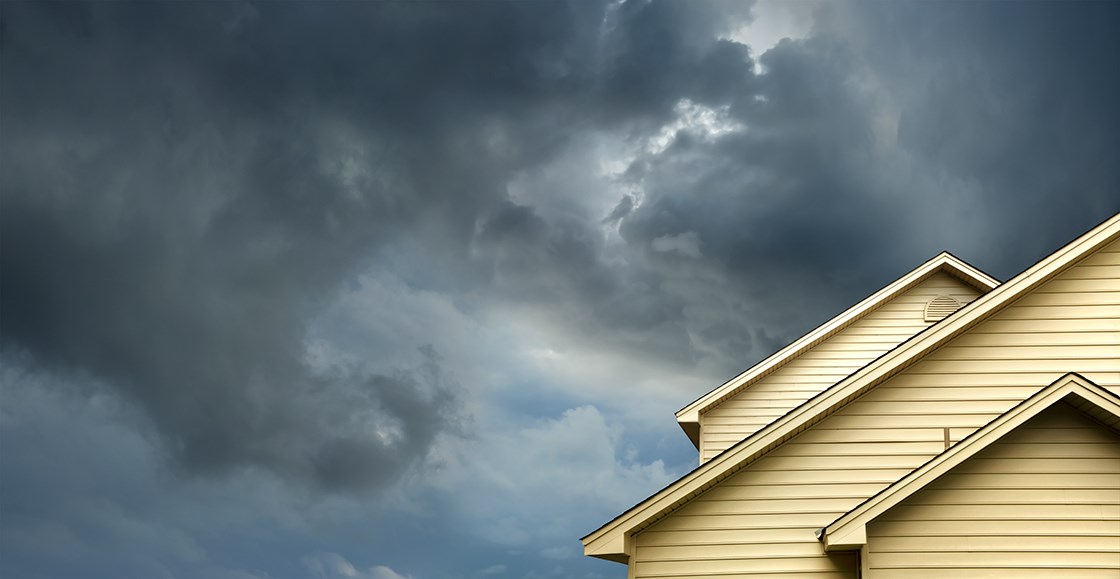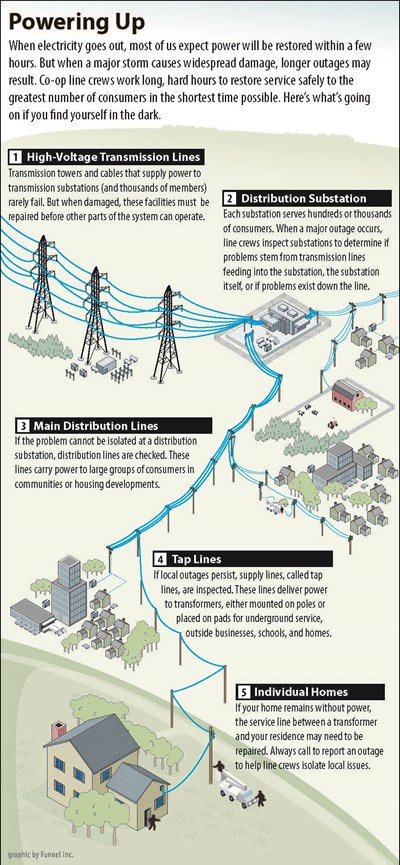Storm Center

Stay safe during a storm. Report all outages and downed power lines immediately.
We work hard to keep your power on around the clock. Unfortunately, storms sometimes result in downed lines and power outages. Use these helpful resources to keep your family safe and informed, and know that during an outage, we’re working hard to restore your power as quickly as possible.
SC Emergency Management Division
Be prepared. Use these storm tips and safety suggestions.
Be ready for a power outage before it happens. Assemble a supply kit before your lights go off during a storm, then rotate those supplies to ensure they stay fresh and working.
Use the following checklist to prepare for a power outage.
- Have Plenty of Food
- Keep a three- to five-day supply of drinking water in plastic bottles. Plan on at least one gallon of water per person per day.
- Store a manual can opener with enough nonperishable foods for three to five days. Canned meats, tuna fish and peanut butter are good examples. And don’t forget pet foods.
- Conserve water by using paper plates and plastic utensils.
- Have a camp stove or grill for outdoor cooking.
- Stay in Touch
- Have a portable, battery-powered radio and alarm clock.
- Have one phone that will work even if power is interrupted.
- Plan where to meet and how to communicate with family members if separated.
Keep essential family member contact information near your phone, in your wallet, and in your car’s glove compartment.
- Keep Things Running
- Keep plenty of gas in your car.
- Keep extra batteries, matches, propane, charcoal and firewood.
- Stay Healthy and Warm
- Coordinate with neighbors for care of the elderly and disabled living alone.
- Maintain a supply of prescriptions, nonprescription drugs, vitamins and special dietary foods.
- Have playing cards, books, drawing and writing supplies, board games and more on hand to help pass the time.
- Keep sanitary and personal hygiene supplies replenished. Premoistened cleansing towelettes are useful and help conserve water.
- Use plastic trash bags and ties for garbage.
- Put first-aid kits in your home and car.
- Make sure you have cold weather clothing, foul weather gear, blankets and sleeping bags.
- Consider purchasing alternative UL-approved heating devices. For example, a fireplace insert or woodstove will keep the heat in your home instead of losing it up the chimney.
- Use flashlights and other battery-operated lighting instead of candles.
- Keep fire extinguishers fully charged.
- Before the storm and in case you lose water, fill your bathtub with water for bathroom use.















